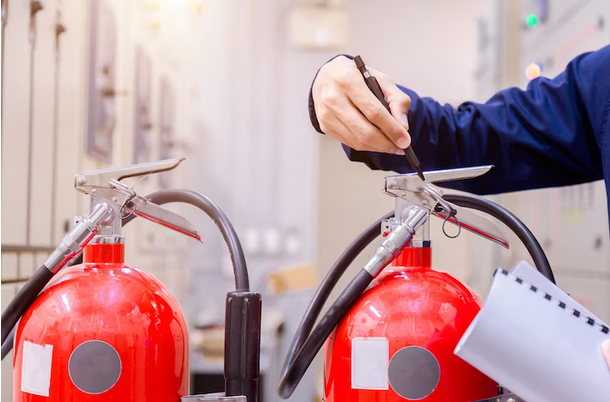In the world of fire safety, there are unsung heroes working behind the scenes to protect lives and property—the fire alarm suppliers. While often overlooked, these suppliers play a critical role in ensuring that the alarm systems we rely on are not only functional but also meet the highest standards of safety. In this exploration, we'll uncover the importance of fire alarm suppliers and why recognizing their contributions is key to enhancing overall fire safety.
Understanding the Role of Fire Alarm Suppliers:
Fire alarm suppliers are the backbone of the fire safety industry, providing the essential equipment that forms the first line of defense against potential disasters. They source, distribute, and often manufacture the components that make up a fire alarm system, including smoke detectors, heat sensors, control panels, and notification devices.
Reliability in Sourcing Quality Components:
The reliability and effectiveness of a fire alarm system hinge on the quality of its components. Fire alarm suppliers play a crucial role in sourcing these components from reputable manufacturers. They ensure that the devices meet industry standards, adhere to safety regulations, and are capable of providing early detection and swift response in the event of a fire.
Customization for Varied Needs:
Not all spaces are created equal, and fire alarm systems must be tailored to specific environments. Fire alarm suppliers understand this diversity and work to provide customizable solutions. Whether it's a commercial office space, industrial facility, or residential building, these suppliers offer a range of products that can be adapted to different needs and configurations.
Compliance with Regulations:
The fire safety landscape is governed by strict regulations and codes designed to protect occupants and property. Fire alarm suppliers are well-versed in these regulations and ensure that the equipment they provide complies with local, national, and international standards. This commitment to compliance is crucial for building owners and facility managers who must meet regulatory requirements to ensure the safety of occupants.
Innovation and Technological Advancements:
The field of fire safety is not static; it evolves with technological advancements. Fire alarm suppliers stay at the forefront of innovation, constantly seeking out new technologies that enhance the performance and reliability of fire alarm systems. This includes advancements such as smart detection, integrated communication systems, and remote monitoring capabilities, all aimed at improving overall fire safety.
Emergency Preparedness:
In times of crisis, the reliability of a fire alarm system is paramount. Fire alarm suppliers understand the importance of emergency preparedness and design systems that are robust and capable of withstanding the challenges posed by fire emergencies. Their commitment to providing reliable equipment ensures that alarm systems are ready to respond when it matters most.
Collaboration with Installers and Service Providers:
Fire alarm suppliers collaborate closely with installers and service providers to ensure that the systems they provide are installed correctly and maintained regularly. This collaborative effort is essential for the overall effectiveness of a fire alarm system. Suppliers often offer training and support to installers, contributing to a network of professionals dedicated to fire safety.
Educating End Users:
The effectiveness of a fire alarm system is not solely dependent on the quality of equipment but also on the awareness and understanding of end users. Fire alarm suppliers take on the role of educators, providing information on the proper use, maintenance, and testing of fire alarm systems. This education is vital for building occupants and owners to maximize the benefits of the installed systems.
The Cost of Cutting Corners:
While it might be tempting to cut costs by opting for cheaper, subpar fire alarm components, the consequences can be severe. Fire alarm suppliers emphasize the importance of investing in quality equipment to avoid false alarms, system failures, and, most critically, the risk of inadequate protection during an actual fire event. The adage "you get what you pay for" rings particularly true in the realm of fire safety.
Building Trust through Long-Term Relationships:
The relationship between a fire alarm supplier and their clients extends beyond a one-time transaction. Suppliers aim to build long-term relationships with clients, offering ongoing support, updates on new technologies, and assistance with system upgrades. This commitment to building trust ensures that clients have a reliable partner in maintaining and improving their fire safety infrastructure.
The Unseen Impact:
The impact of fire alarm suppliers goes beyond the tangible components they provide. Their work contributes to a culture of safety that permeates buildings and communities. The reliability of fire alarm systems instills confidence in occupants, creating an environment where individuals feel secure and protected. This sense of security is immeasurable and speaks to the hidden yet profound impact of fire alarm suppliers.
Looking Ahead: The Future of Fire Safety:
As technology continues to advance, the role of fire alarm suppliers will only become more critical. From the integration of artificial intelligence for more accurate detection to the development of eco-friendly and sustainable components, the future holds exciting possibilities. Fire alarm suppliers will continue to be at the forefront, driving innovation and ensuring that fire safety remains a top priority.
Conclusion:
In recognizing the importance of fire alarm supplier we acknowledge the unsung heroes working tirelessly to protect lives and property. Their commitment to sourcing quality components, ensuring compliance, fostering innovation, and building lasting relationships contributes to a safer and more secure world. As we navigate the complexities of fire safety, let us not overlook the hidden heroes who play a vital role in the unseen yet invaluable aspects of our collective well-being.




 (2).jpeg)

Comments